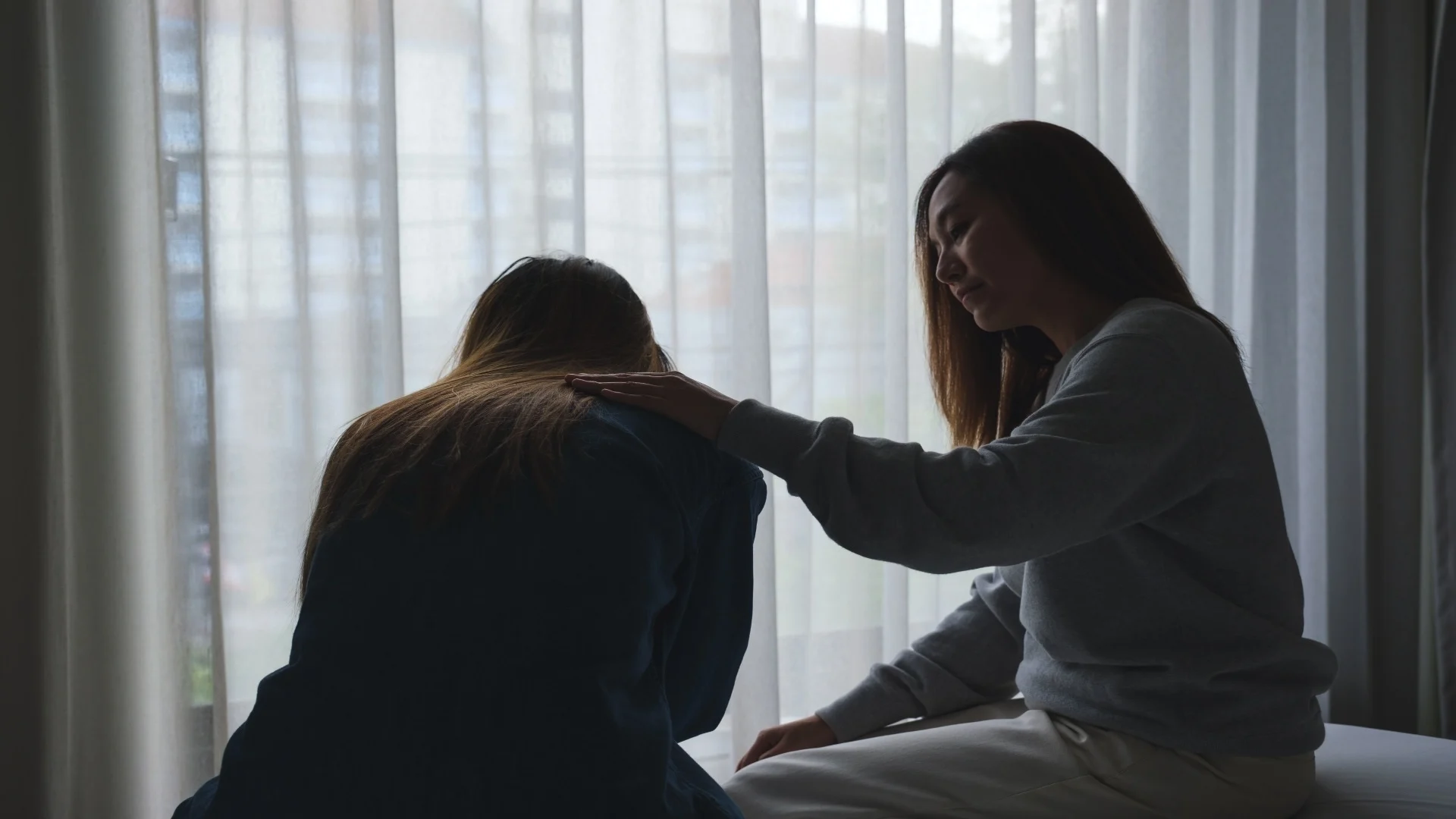Mental Health
Treatment for Major Depressive Disorder

Discover effective treatment options for Major Depressive Disorder, including therapy, medication, and holistic approaches designed to support recovery.
What are the most effective treatments for major depressive disorder?
Effective treatment for major depressive disorder includes a combination of antidepressant medications, such as SSRIs and SNRIs, and psychotherapies like cognitive-behavioral therapy (CBT) and interpersonal therapy (IPT). Lifestyle modifications, including regular exercise and a balanced diet, are crucial in managing symptoms.
How long does it take for antidepressants to work for major depressive disorder?
Antidepressants typically take 4 to 8 weeks to exhibit their full therapeutic effects in treating major depressive disorder. Some individuals may notice improvements in sleep and appetite earlier, but mood enhancements often require several weeks of consistent medication use.
Can lifestyle changes help in treating major depressive disorder?
Yes, lifestyle changes can significantly aid in treating major depressive disorder. Engaging in regular physical activity, maintaining a nutritious diet, ensuring adequate sleep, and fostering social connections have been shown to alleviate depressive symptoms and improve overall well-being.
What role does psychotherapy play in managing major depressive disorder?
Psychotherapy is a cornerstone in managing major depressive disorder. Approaches like CBT help individuals identify and modify negative thought patterns, while IPT focuses on improving interpersonal relationships and communication skills, both contributing to symptom relief and prevention of relapse.
Are alternative treatments effective for major depressive disorder?
Alternative treatments, such as acupuncture and certain herbal supplements like St. John's Wort, have shown some efficacy in alleviating symptoms of major depressive disorder. However, they should be used cautiously and under professional guidance due to potential interactions with conventional medications.
Dealing with major depressive disorder (MDD) can feel incredibly isolating and burdensome. If you or a loved one is struggling, it's essential to know that adequate support and healing are within reach. Treatment for major depressive disorder involves more than just addressing symptoms; it requires a compassionate and tailored approach to foster long-term well-being.
At The Edge Treatment Center, we understand the profound challenges of Major Depressive Disorder (MDD) and are committed to providing personalized treatment plans to guide you toward recovery. With the proper support, you can reclaim your life and look forward to a healthier future.
Understanding Major Depressive Disorder

Major Depressive Disorder (MDD) is a complex and severe mental health condition that affects millions worldwide. It is characterized by persistent sadness and a lack of interest or pleasure. Recognizing the signs of MDD is crucial for seeking professional treatment and preventing further complications.
Causes and Risk Factors
MDD often results from a combination of genetic, biological, environmental, and psychological factors. A family history of depression increases susceptibility. Imbalances in neurotransmitters, such as serotonin and dopamine, also play a role. Environmental stressors such as trauma or prolonged stress, and personality traits like low self-esteem, can contribute to depression.
Impact on Daily Life
MDD can severely disrupt daily activities, reducing productivity at work or school, straining relationships, and affecting self-care. Without treatment, these effects can escalate, underscoring the importance of early intervention and ongoing support.
Signs and Symptoms of MDD
MDD presents with symptoms that deeply impact everyday functioning. Common signs include persistent sadness, overwhelming feelings of hopelessness, and a profound loss of interest in activities that were previously enjoyed.
These feelings may be accompanied by changes in sleep (insomnia or hypersomnia), appetite fluctuations, fatigue, difficulty concentrating, and, in severe cases, thoughts of self-harm or suicide. Early recognition is essential for timely intervention.
Emotional Symptoms
Persistent Sadness: A deep, unshakable sorrow that lingers most of the day, nearly every day.
Feelings of Hopelessness: A sense that nothing will improve, often accompanied by despair about the future.
Irritability: Even minor frustrations can trigger disproportionate anger or agitation, especially in adolescents and men.
Physical Symptoms
Appetite Changes: Noticeable weight loss or gain unrelated to dieting; either a loss of appetite or compulsive eating.
Sleep Disturbances: Struggling with insomnia, restless sleep, or sleeping excessively (hypersomnia).
Fatigue: Persistent tiredness or lack of energy, even after a whole night’s rest. Simple tasks can feel exhausting.
Cognitive Symptoms
Difficulty Concentrating: Trouble focusing, remembering details, or making decisions.
Indecisiveness: Struggling with even minor choices, often accompanied by self-doubt and second-guessing.
Behavioral Symptoms
Social Withdrawal: Pulling away from friends, family, and activities once enjoyed.
Loss of Interest in Hobbies and Activities: A disconnection from passions or daily pleasures, sometimes leading to total disengagement.
These symptoms often intertwine, creating a cycle that can feel difficult to break. But recognition is the first step. When individuals or their loved ones notice these changes, seeking help from professionals, like those at The Edge Treatment Center, can initiate a path toward healing and renewed stability.

We’re Here To Help You Find Your Way
Would you like more information about mental health or drug addiction? Reach out today.
Managing Major Depressive Disorder: What Works
Effectively managing Major Depressive Disorder (MDD) goes far beyond taking a daily pill or attending the occasional therapy session.
It requires a comprehensive, individualized approach that addresses biological, psychological, and lifestyle factors simultaneously.
While some people improve with medication alone, most experience better and longer-lasting outcomes when multiple treatment modalities are strategically combined.
Medications: More Than Just a Mood Boost

Antidepressants are often a foundational tool for treating MDD, especially for moderate to severe cases. But not all medications work the same, and their impact varies widely across individuals.
SSRIs (Selective Serotonin Reuptake Inhibitors)
These are the most commonly prescribed antidepressants. SSRIs increase serotonin availability in the brain, which helps regulate mood and emotional well-being. Examples include fluoxetine (Prozac) and sertraline (Zoloft). They’re often well-tolerated, but may cause side effects like sexual dysfunction or sleep issues.
SNRIs (Serotonin-Norepinephrine Reuptake Inhibitors)
By boosting both serotonin and norepinephrine, SNRIs such as venlafaxine (Effexor) and duloxetine (Cymbalta) can address both emotional and physical symptoms of depression, including fatigue and body aches.
Tricyclic Antidepressants (TCAs)
An older class of drugs, like amitriptyline or nortriptyline, TCAs are typically reserved for patients who haven’t responded to first-line treatments. They’re effective but have more potential side effects, including dry mouth, constipation, and irregular heartbeats.
MAOIs (Monoamine Oxidase Inhibitors)
Used less frequently today due to dietary restrictions and interactions with other medications, MAOIs like phenelzine (Nardil) may be effective in treating cases that are resistant to different treatments.
Key Considerations:
Medication isn’t one-size-fits-all. Finding the right drug and dose often requires a trial-and-error approach.
Patience is critical—most antidepressants take 4–6 weeks to reach full effectiveness.
Regular follow-ups with a prescribing clinician ensure timely adjustments and monitoring of side effects.
Therapy: The Core of Psychological Recovery
Psychotherapy is not just for talking through problems—it’s a structured, evidence-based process that targets the underlying patterns fueling depression.
Cognitive Behavioral Therapy (CBT)
Focuses on identifying distorted thoughts (e.g., “I’m a failure”) and replacing them with more balanced and accurate ones.
Encourages behavioral activation—breaking the cycle of avoidance by gradually re-engaging in meaningful activities.
Teaches coping skills to manage stress and prevent relapse.
Interpersonal Therapy (IPT)
Targets relationship dynamics and life changes that may contribute to depressive symptoms.
Especially helpful for those dealing with grief, role transitions, or chronic interpersonal conflict.
Equips patients with communication tools to express needs and resolve issues more effectively.
Psychodynamic Therapy
Helps uncover how past experiences, often rooted in childhood, continue to influence current behavior and emotional responses.
Encourages insight and emotional processing, which can lead to long-term behavioral shifts.
Works well for individuals with deeply rooted patterns of self-criticism, guilt, or low self-worth.
A skilled therapist helps determine which modality—or combination—is the best match based on your history, symptoms, and goals.

We’ll Lead You to New Heights
Do you have more questions about mental health or drug addiction? Reach out.
Holistic Support: Strengthening the Foundation
Even the best medication or therapy plan can fall short without a solid lifestyle foundation. Addressing physical health, daily routines, and self-care practices often provides the "glue" that holds the treatment strategy together.
Nutrition
A brain-healthy diet rich in omega-3 fatty acids, leafy greens, legumes, and lean proteins supports neurotransmitter function.
Reducing processed sugars and inflammatory foods can help stabilize mood fluctuations.
Hydration also plays an underrated but vital role in energy levels and focus.
Exercise
Physical activity increases endorphins and brain-derived neurotrophic factor (BDNF), supporting mood regulation.
Just 30 minutes of brisk walking five times a week can deliver noticeable improvements.
Group classes or team sports offer the added benefit of social interaction.
Sleep Hygiene
Depression and sleep issues often go hand in hand.
Stick to a consistent bedtime and wake-up time—even on weekends.
Minimize nighttime light exposure and reduce caffeine intake in the late afternoon.
Consider cognitive-behavioral therapy for insomnia (CBT-I) if sleep doesn’t improve.
Mindfulness and Relaxation Techniques
Daily meditation or guided breathing helps calm the stress response.
Mindfulness-based CBT combines traditional cognitive tools with present-moment awareness to reduce rumination.
Practices like yoga and tai chi also bridge the gap between mental focus and physical well-being.
Combining Treatments: Why Integration Wins
MDD is a multi-dimensional condition. That’s why successful management typically relies on combining treatments that work together rather than relying on a single “silver bullet.”
Benefits of an Integrated Plan
Synergy: Medication may reduce the intensity of symptoms, making therapy more productive.
Resilience: Lifestyle changes improve mood stability and buffer against relapse.
Whole-Person Care: Physical, emotional, and social factors are all addressed in tandem.
Customized Care
The most effective treatment plans are flexible and adaptive.
A plan that works now may need adjustments months later as symptoms change or life circumstances shift.
Collaborative input from doctors, therapists, and the individual ensures that care stays aligned with evolving needs.

We’re Here To Help You Find Your Way
Do you need advice about mental health or drug addiction? Reach out today.
The Edge Treatment Center: Your Partner in Healing

At The Edge Treatment Center, we’re committed to supporting individuals on their path to mental health and addiction recovery. We focus on delivering personalized care plans emphasizing comprehensive and holistic treatment, ensuring lasting recovery.
Personalized Treatment Plans:
Individual Assessments: Thorough evaluations to understand each person’s unique needs.
Tailored Therapies: Matching therapeutic modalities to individual goals.
Continuous Monitoring: Ongoing evaluations and flexible planning ensure long-term effectiveness.
Supportive Environment:
Therapeutic Atmosphere: A nurturing space designed to promote peace and reflection.
Empowerment Through Support: A community setting where shared experiences foster encouragement.
Resources for Growth: Tools for both immediate recovery and long-term wellness.
The Edge Treatment Center is dedicated to being your partner in achieving lasting recovery. By tailoring our approach to each individual’s journey, we empower you to embrace a healthier, more fulfilling life.
Stories of Hope and Recovery
Exploring stories of individuals who have successfully battled Major Depressive Disorder through effective treatment and support can provide powerful encouragement.
Overcoming Adversity:
Battling the Odds: Stories of strength and perseverance despite complex challenges.
Resilience in Action: Demonstrating how treatment and persistence lead to transformation.
Embracing Change: Lifestyle shifts that contribute to healing.
Personal Testimonies:
Diverse Healing Journeys: No single path—each experience is unique.
Glimpses of Hope: Key moments that inspired continued progress.
Empowerment through Experience: Using lessons learned to uplift others.
Community Support's Impact:
Networks of Care: Highlighting the role of family, friends, and community.
Shared Healing: Support groups and therapy provide collective strength.
Long-Term Wellness: Sustained recovery often requires consistent support.
These stories highlight the power of resilience, showing others that recovery is both possible and deeply rewarding.
Struggling with Major Depressive Disorder? Find Your Path Forward
Treatment for major depressive disorder is a journey filled with hope, resilience, and the promise of a healthier future. Taking the first step toward healing is crucial; you don’t have to do it alone.
At The Edge Treatment Center, we’re here to support you with specialized treatment plans tailored to your unique needs. Our comprehensive approach is designed to empower you toward recovery and lasting wellness. Reach out today—your path to a brighter, more fulfilling life starts here.

We’re Here To Help You Find Your Way
If you or a loved one is struggling with addiction, there is hope. Our team can guide you on your journey to recovery. Call us today.
Written by
The Edge Treatment Center
Reviewed by
 Jeremy Arzt
Jeremy ArztChief Clinical Officer
Mental Health
July 27, 2025
